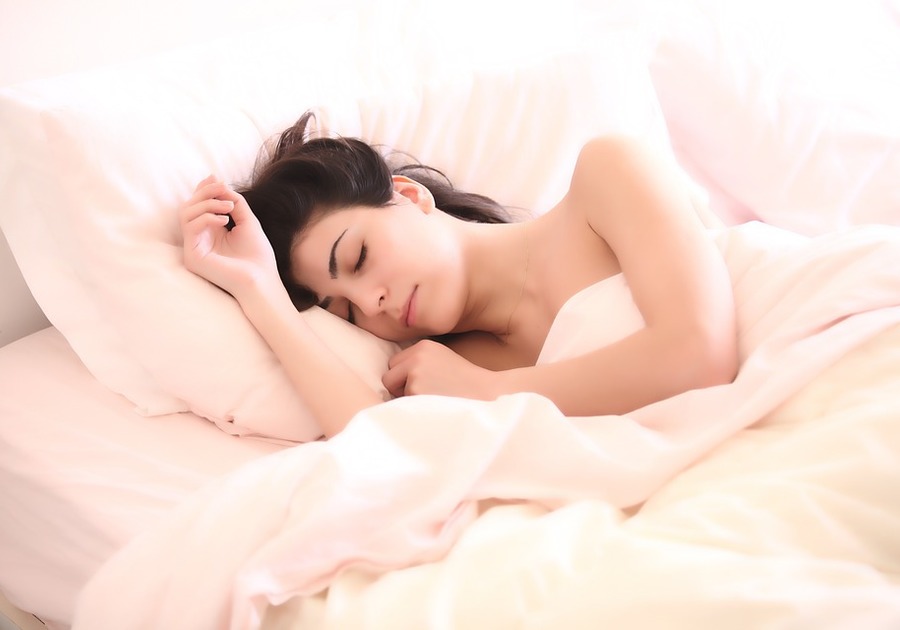In our hurried culture, there is much praise for multi-tasking and accomplishing as much as is humanly possible. The more done the better! Take a break? Never! Take a nap? As if! But in all this “glory” of non-stop flurry we're losing out on the benefits of a natural pace and more specifically we’re sabotaging the essential physiological benefits that occur from a quality bedtime routine and nourishing sleep. Let's take a closer look at how truly nourishing sleep can help us live better lives.
In Dr. Rangan Chatterjee’s new book, “The 4 Pillar Plan” he dedicates an entire “pillar” to sleep in our plan towards a healthy life. Dr. Chatterjee discusses a concept called 'autophagy' discovered by Japanese biologist, Yoshinori Ohsumi in which the body’s cells break down all unnecessary dysfunctional components and recycle them to be used elsewhere in the body. This process can only occur during the sleep cycle when the energy typically utilized in waking hours can be redistributed towards this process. It's in sleep that our body essentially ‘recycles the trash.’ In fact, there is a theory that during sleep our brain cells shrink to allow space to open up between nerve cells and rid themselves of built up toxins accrued during the day; only to be “washed” out at night during sleep in the process of autophagy. Our bodies are incredible! One protein that the body is theorized to washout of the system at night is the beta-amyloid protein that has been found to accumulate in the brains of individuals with Alzheimer’s.
Most of us know the value in a goods night sleep when compared to an inconsistent night’s rest with small children, a bout of insomnia, or a night binge watching the latest tv show. We wake up grumpy, unable to focus, craving sugary and greasy meals, drinking too much caffeine, and feeling just not on our game. There has been scientific proof that those that are sleep deprived are more likely to get into car accidents, are more likely to be obese, have type 2 Diabetes, and have an increased chance of psychiatric disorders. But if we have little one’s or chronic insomnia how can we work towards this important task of caring for our health?
Developing good sleep hygiene or “habits and practices that are conducive to sleeping well on a regular basis” can help prioritize this important daily ritual. Below are a few ideas I have pulled together from various research:
1. Determining what time you will go to bed and what time you will rise and sticking to that schedule as best as possible. According to the National Sleep Foundation, adults aged 26-64, need 7-9 hours a night (see chart here). Sadly naps can disrupt these cycles so if you absolutely must nap, limit it to 30 minutes a day.
2. We have heard that turning off electronic devices is also important to allowing your body to get sleepy, but do you know why? The blue light emitted from your phones and even your tv is at the same wavelength as the sun, thus your body thinks it should be awake and stops releasing melatonin. If you are unable to turn them off two hours before bed, consider checking your phone to see if it has a natural blue light emittance switch (most do). You can also download apps such as f.lux to help you “dim” your electronics at a certain time of night. The other option is to purchase ambershaded glasses to wear that can emulate the same thing.
3. Eliminate light pollution in your room. This was an interesting concept to me. Ensuring that there was no light filtered in your room via outside sources such as moon light, street lights, etc. In addition to turning off light sources in your room, such as a digital clock (switch to an old fashioned clock that doesn’t emit a light), phones charging, tv buttons on, etc. helps to set your circadian rhythm by telling your body to release melatonin for sleep. If darkening your room is out of the question, consider wearing an eye mask to bed to start up your night cycle.
4. Change night lights for kids to a red light. Red is the wavelength which has the least impact on your bodies circadian rhythm and can allow for better sleep. The theory is that this wavelength doesn’t interfere with the bodies ability to make melatonin as the blue light does. Thus children can still have the comfort of light but not the interruption to their sleep. Win win!
5. Since I'm a sucker for a good recipe, try adding a vegan “Golden Milk” to your night time routine! (recipe here) Not only are the ingredients (coconut milk, turmeric, pepper and ginger) contained in this recipe anti-inflammatory, but drinking a warm drink before bed can induce a sleepy state and further enhance your night time routine.
Sweet Dreams!



